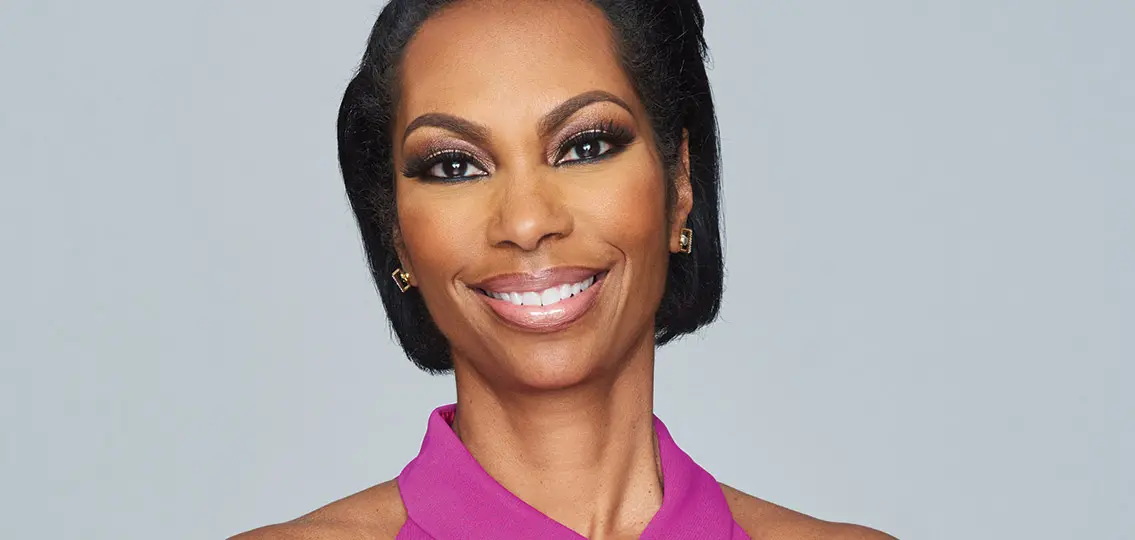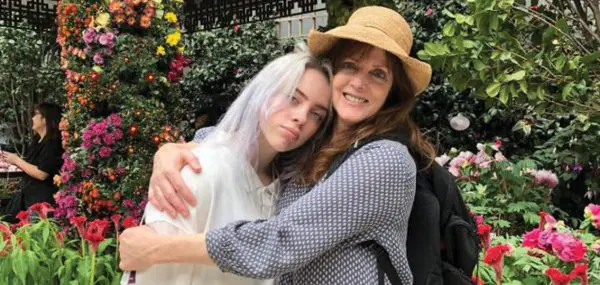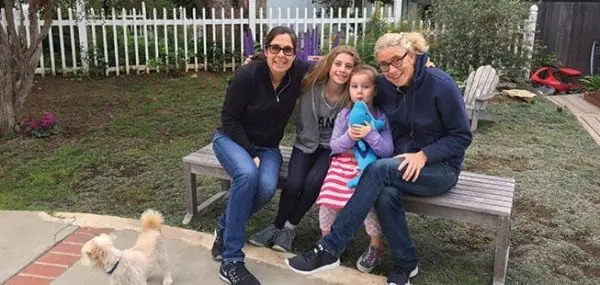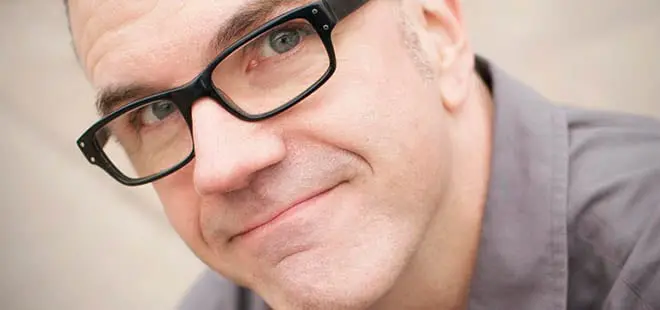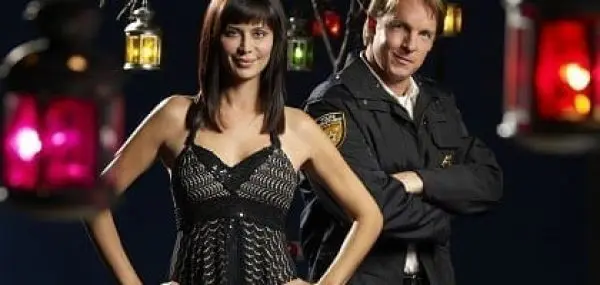Harris Faulkner is the anchor of FOX News Channel’s Outnumbered Overtime and a co-host of Outnumbered. She and her husband are also the parents of two girls who are in their tween years. Faulkner talked with us about how her lifelong curiosity, love of storytelling, and ability to stay calm in moments of stress are helping her dominate the daytime ratings race and tackle the demands of parenting in today’s hectic world.

Q: Tell us about your journalism career. How did you advance to where you are now?
Faulkner: I started out in a very small market in Greenville, North Carolina, and I was always looking for ways to apply myself. Almost like extra credit. How can I be helpful in this instance and really learn? I would hang out with the photographers and the editor because I wanted to know the most about storytelling, and I knew that it really began with the pictures and the sound. And before that I had interned and learned how to edit. And the better I got at communicating other people’s stories on the air, the more success the stories had.
Q: How do you approach reporting on breaking news?
Faulkner: When I speak at journalism conferences, one of the first things I tell people is everybody at home has the remote, so they don’t need you to turn it up. There’s no reason to shout when you’re doing breaking news. If there’s a shooting or something terrible has happened—usually breaking news is not good news—I’m very sensitive to people becoming anesthetized to all of the hype and all the shouting. And so I’ve made it my plan my entire career to set myself apart by being somebody who can stay calm in the most egregious situation. It wasn’t always just to engender a spirit of “oh, it’s a crisis, but let me calm you down.” It was really about understanding how we take in information—the more hyped stuff gets, the less people retain.
Q: Are you able to take that attitude of calm home with you?
Faulkner: What I realized is when my daughters are bickering, it does not help for me bring my own suitcase full of drama. I have a big personality and want to solve the issue, but with them at 10 and 12, I also have to listen and let them navigate through whatever they’re working out, whether it’s an argument or sharing something. Now we’re getting to the age where moms should have fewer rules and less tone of “Mommy-ness” in the voice, and instead more investigation. Like, “Really? Wow. Why did you come to that conclusion?” I think that’s very important.
Q: It sounds to me like that kind of curiosity is what has propelled you forward in your career, too.
Faulkner: That is very true. The more curious you are, the more success you will have, because you constantly look for something that maybe other people are not looking for or haven’t found. And you create value for yourself by doing that. So in my interviews as a very young reporter, what I realized is that I would make the evening news because I would ask questions that other people didn’t ask. And I legitimately wanted to know: What was that that you just did? Why did you do that? Curiosity means you’ve got to be listening. You can even have curiosity when you have nothing to do in your first jobs—you go and ask other people what they are doing.
Q: Where did that come from?
Faulkner: I grew up military. My dad was a fighter pilot. My mom taught kindergarten for a number of years. She raised me to always be looking for a way to be the solution. And my dad was so curious. He grew up with nothing in the sticks of Texas. As a very young boy he realized it was going to take some doing to get out of poverty where he was. His grandmother instilled in him this idea that you can get anywhere if you open your eyes and open your ears. And my dad said as a little boy he used to dream about flying in rarefied air. And now he tells me, “Harris, you’re in rarefied air where you are, and you can continue to reach.” And so from a very early age, I was taught to keep reaching. You never know where you’re going to get, but you’ve got to keep reaching.
Q: That’s so beautiful. How do you transfer that to your girls?
Faulkner: What I tried to instill in them is to make your choices and decisions. Everything is possible. But you don’t need to do everything—you need to do the right thing for both who you are and who we are. And for your own personal growth. I try to get my girls to understand that they are worth the world. They are worthy of love and support and belief in their dreams. And anything or anybody that makes you feel less worthy, make sure you don’t spend too much time with them. If they’re in a group in social studies and have to do a project together, work through it. Get it done, but that person is not necessarily a friend. That person is a colleague, a classmate that you can work things through with.
Q: How would you define your style of parenting?
Faulkner: It’s changing. I was what was called a helicopter mom, and I would get teased about it except for the fact that I could read a fever from 10 feet away. I just know my kids so well. I know when something’s gone wrong, when something’s not quite right. But what I’m realizing now is that I have to park my chopper sometimes. Following their own instincts is basic common sense, and your kids can’t do that if you’re always making decisions for them. I’m a work in progress. But I want their confidence to come from within. Not from somebody always fixing things for them and then explaining to them how they should do it better next time. I want them to figure things out while I’m still around to be there when mistakes are made or when they could have gone in a different direction.
Q: You’re a public figure and you’re raising your kids a little bit in the limelight. How does that impact parenting for you?
Faulkner: It’s gotten a little bit difficult here recently because people will not always act with the best judgment, and then there are the politics that we have going on and things being driven by race and gender so much. My children are biracial, and people come up and say all sorts of things which makes me question how many people on the planet are day-drinking at this point. Because I cannot imagine anybody leaving their houses and saying some of this stuff and thinking it was a good idea before they left.
I feel very blessed that when people see me, they feel like they can talk to me because they feel like I’m in their house every day. But it doesn’t always mean that they’re going to dial up their best versions of themselves. And so I tell my girls, “We’re patient with people. We’re in the public eye together.” The other thing I tell my girls is, “Don’t ever assume you’re the only one with the best answer.” We all have to listen to each other. What if you brought a fork and she brought a spoon and he brought this and you brought that; now you have a whole meal.
